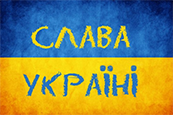In the early morning of April 16, 1993 at about 5:45 to 6:00 a.m. Bosniak areas of Vitez and Krušcica were attacked by Croat artillery, which increased during the morning and included mortar fire of various
The Lašva Valley ethnic cleansing campaign against Bosniak civilians planned by the Croatian Community of Herzeg-Bosnia's political and military leadership from May 1992 to March 1993 and erupting the
The City of Mostar was surrounded by the Croat forces for nine months, and much of its historic city was severely damaged in shelling including the famous Stari Most bridge.[62] Mostar was divided into a
The fighting in Vitez continued after April 16, 1993. The old town of Stari Vitez (or Mahala as it called) remained in Bosnian government hands. However, the HVO surrounded it and subjected it to siege and
On April 18, 1993, the Bosniak villages of the Kiseljak municipality came under attack. The background to the attacks was an order by colonel Tihomir Blaškić to an HVO brigade to capture two of the
Gornji Vakuf is a town to the south of the Lašva Valley and of strategic importance at a crossroads en route to Central Bosnia. It is 48 kilometres from Novi Travnik and about one hour's drive from Vitez in an
The villages of Lončari, Merdani and Putiš are in the area to the east of Ahmići and north of Busovača. After the attacks on the villages in January 1993, a significant number of the civilian population went to
- 1
- 2









